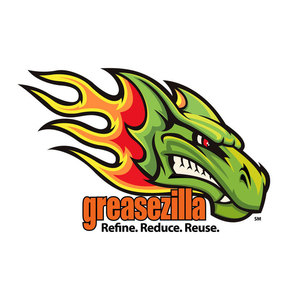Wastewater facilities incorporate Greasezilla technology

October 13, 2022
BY Downey Ridge Environmental Co.
Downey Ridge Environmental Co., developer of Greasezilla FOG (fats, oils & grease) separation and processing system, announces a significant increase in the number of wastewater facilities incorporating Greasezilla into their operations. The industry’s urgency to protect wastewater infrastructure combined with new funding established through the U.S. Infrastructure Investment and Jobs Act (2021) and the EPA’s expansion of renewable identification number (RIN) credits for low carbon-intensity (CI) biofuel feedstocks, is propelling interest in Greasezilla systems. Greasezilla’s ecological process, packaged into a turnkey, highly-automated system, not only reduces costs and mitigates landfilling, but also creates new operational profits for wastewater treatment facilities.
Prominent wastewater engineering and operations companies like Woodard & Curran are partnering with Greasezilla to incorporate its innovative technology at projects across the United States. In the coming weeks, the wastewater treatment facility contract operated by Woodard & Curran for the City of Groveland, Florida, is preparing to bring a newly installed Greasezilla system online to handle the plant’s FOG processing and disposal.
“As we strive to meet the specific, unique needs of each of our clients, we select solutions that provide the greatest benefit to their operational, sustainability and financial goals,” said Jay Sheehan, PE, senior vice president with Woodard & Curran, “Greasezilla has proven to be the right fit for projects like Groveland that are focused on resource recovery and waste reduction.”
Advertisement
Utilities spend billions of dollars each year unclogging or replacing FOG-obstructed pipes, repairing pump stations, cleaning up sewer backups and keeping FOG from damaging plant equipment. Many wastewater facilities still receive FOG without upstream processing, leaving it to be co-treated alongside wastewater.
“Any plant taking FOG into their facilities is experiencing the same challenge, spurring Greasezilla’s growth in the sector,” said Ron Crosier, president, Greasezilla. “Utilities are always looking to safeguard their infrastructure and endorse best practices, and Greasezilla is helping them achieve those goals, leading to lower costs, greater efficiency and improved resource recovery for long-term sustainability.”
Greasezilla supports pretreatment programs at facilities that accept FOG by providing an ecological and cost-effective process that diverts FOG from the waste stream. The system’s ability to separate FOG into pasteurized water, advanced biofuel (ABF) and batter reduces costs associated with FOG treatment and disposal while generating revenue from biofuel sales. Greasezilla works without polymers, flocculants or other additives, and is fueled by about five percent of the ABF it generates.
Advertisement
The company guarantees that Greasezilla’s biofuel output is a saleable commodity. Greasezilla’s advanced biofuel is an RIN-qualified feedstock for biodiesel, renewable diesel, sustainable aviation fuel and heating oil. Global demand for biofuels and low-CI feedstocks adds to Greasezilla’s ABF value. Greasezilla offers clients a service to manage sales of the biofuel offtake on their behalf.
Greasezilla is working closely with wastewater treatment sites in New England, New York, New Jersey, the mid-Atlantic, Tennessee, Georgia, Florida and Texas, and expects to install a minimum of 10 new systems at wastewater plants by the end of 2023. Additionally, Hampton Roads Sanitation District (HRSD) is nearing completion of its state-of-the-art fats, oils, and grease (FOG) receiving facility at its Nansemond Treatment Plant in Suffolk, Virginia. Scheduled to open in Q1 2023, the FOG receiving facility will utilize Greasezilla to separate and process FOG into advanced biofuel.
Related Stories
At the University of Missouri, plant biochemist Jay Thelen is using arabidopsis as a powerful model to explore ways to boost oil production — an important step toward creating more sustainable, plant-based energy sources.
Iowa farmers have a new market opportunity for their 2025 soybean crop. Landus is expanding its Clean Fuel Regulation initiative, made possible by recent policy changes expected to increase Canada's demand for liquid biofuel.
Topsoe, a leading global provider of advanced technology and solutions for the energy transition, has been selected as the renewable diesel technology partner for CountryMark’s Mount Vernon, Indiana refinery.
The U.S. exported 35,953.6 metric tons biodiesel and biodiesel blends of B30 or greater, according to data released by the USDA Foreign Agricultural Service on Aug. 5. Biodiesel imports were at 2,148.9 metric tons for the month.
XCF Global leverages Alfa Laval technology to enhance pretreatment capabilities at New Rise Reno facility
XCF Global Inc. on Aug. 5announced it leverages Alfa Laval Inc. pretreatment technology at its New Rise Reno biorefinery, a sustainable aviation fuel (SAF) plant located in Nevada. The pretreatment technology enhances feedstock flexibility at the plant.
Upcoming Events










